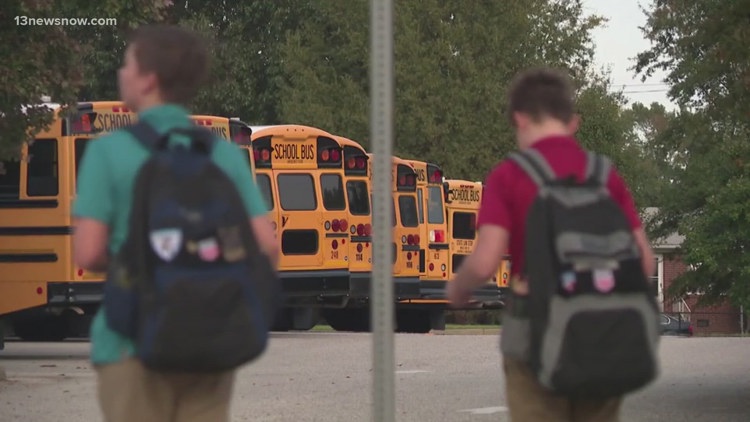Virginia's New School Laws Are Live: What You Need to Know

A number of new education-related laws took effect in Virginia on July 1, bringing changes to teacher training requirements, student safety protocols, and access to health services in schools.
Here’s a look at what’s new:
-
Limits on teacher training (HB 1626 / SB 822): Public school teachers can no longer be required to participate in non-academic training sessions more than once within six months of being hired and once every five years after that. The total amount of non-academic training required cannot exceed 25 hours over five years, with exceptions only for certain secure testing-related violations.
-
Extreme heat safety for student-athletes (HB 1663 / SB 1104):
The Virginia Board of Education must now create and regularly update guidelines for protecting student-athletes from extreme heat. Local school boards are required to adopt policies that monitor Wet Bulb Globe Temperature (WBGT) levels, establish tiered heat-acclimatization procedures, ensure students have unhindered access to hydration, and lay out steps for preventing and responding to heat-related illnesses.
-
Cardiac emergency response plans (HB 1695 / SB 817): All public elementary and secondary schools are required to develop cardiac emergency response plans or athletic emergency action plans. These plans must include evidence-based guidelines for responding to sudden cardiac arrest, establish a trained response team, and coordinate with local emergency medical services.
-
Bleeding control kits and programs (HB 1700): School boards must implement bleeding control programs in all public schools. This includes placing kits with bandages, tourniquets, and other supplies in easily accessible locations, along with conducting annual inspections and restocking.
-
Hiring restrictions for certain criminal convictions (HB 1924): School boards are now barred from employing or contracting with anyone convicted of felony violent crimes or offenses involving a child, expanding existing hiring restrictions. However, exceptions may be made for individuals whose crimes did not involve child abuse, who have had their rights restored by the governor, and who are approved by the school board.
-
School-based telehealth services (HB 1945 / SB 1037): School boards are encouraged to adopt policies that allow students to schedule and participate in telehealth services, including mental health teletherapy, on school property during school hours with parental consent. Schools must provide private, secure locations for these appointments and ensure students are not disciplined for telehealth absences if similar in-person health appointments would be excused.
-
Advertising school bus driver jobs (HB 1993): Local school boards are now permitted to place decals, posters, or stickers on school buses advertising the hiring of school bus drivers in their division. These advertisements cannot obstruct the bus’s identification number or school division name.
-
Indoor air quality requirements for schools (HB 2618/ SB 1413): New rules require school divisions to inspect and evaluate indoor air quality in each public school building at least once every two years, with a more formal industry-recognized inspection at least once every four years.
-
Limits on student cell phone use (HB 1961 / SB 738): Schools are now required to adopt policies that restrict student cell phone use during school hours. Exceptions are allowed for documented health or learning needs.
-
Parent notification of overdoses (HB 2774 / SB 1240): Schools must notify parents within 24 hours if there is a confirmed or suspected student overdose on or near school property.
-
Changes to Standards of Learning assessments (HB 1957): Virginia’s SOL tests will shift to a 100-point grading scale. The new system aims to improve test design and reduce the amount of instructional time lost to testing.
-
Physical exam requirement for student-athletes (SB 1320): Middle and high school athletes must now submit a physical evaluation form completed within 14 months, instead of 12 months, before tryouts to be eligible to participate.
For more details on these new laws, families can visit the Virginia General Assembly’s website or contact their local school division.
Want to know more on Virginia's new laws? Visit our full list of legislation that took effect on July 1 .
Comments
Post a Comment